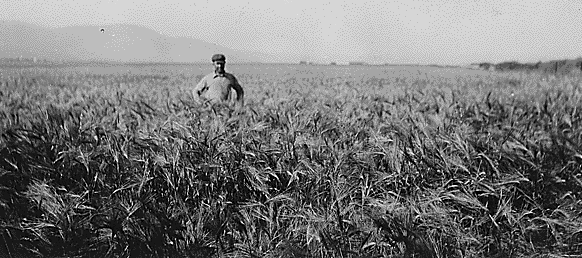Between Rwanda and Sierra Leone: Canada's Beer Drinking Habit

Something about booze loosens the tongue and blurs the hard, critical lens through which we see the world. In glazed-over states, we begin to speak in superlatives; every person or thing seems coated in some sort of impossibly shiny varnish. "I love you," says one. "This is the best night of my life," says another. "I've never been this wasted," says the last.
These are moments best not recorded in HD; and thankfully, few of us keep any legitimate account of exactly what happens when we drink. So it is our good fortune that the World Health Organization has been keeping track of the averages, if not the hazy details, of global alcohol consumption. According to them, Canada slots in at 48th place overall, cozied up between Rwanda (47th) and Sierra Leone (49th) at the bar.
On average, Canadians drink about half as much as Moldovans, the world leaders, but about ten times the amount of typical Algerians (who themselves drink Somalians under the table at a rate of ten to one). All of this places us firmly in the middle of the pack, for western countries-a statistical meh.
But this is an article about beer, and superlatives, and the happy relationship between the two; statistically, Canadians who drink, drink beer. If we are considered by our suds guzzling alone, Canadians rise to 27th in the world. On the other hand, if we only look at wine consumption, we rank 45th, and in terms of spirits, a paltry 55th place. We're not the best, or the worst, or the most drunk, but drunken Canadians seem to think beer is the most amazing, top thing in the world ever.
We should be congratulated for our good decision-making; beer makes sense in Canada on a number of levels, chiefly the geographical one. The cartoonish mass of Canadian territory, where 75 percent of our humans live tightly freckled along its southern border, is a logistical nightmare. Our airlines and railroad are among the most expensive in the world for a reason.
Anyone who has shipped a package knows that there are two factors determining cost. Volume is important, but the weight of the package is what can really up the ante. Wine and beer are extremely heavy and expensive things to ship-after all they are mostly water. And they are both usually packaged in glass, which happens to be the heaviest of all packing materials. These expenses also represent ecological costs, as we rely on burning some serious crude whenever we move heavy things.
If at all possible, we should be making our booze very close to where we drink it. The world's grape growing regions are amazingly scarce, and though Canada has a growing wine industry, we have nowhere near the production capacity of Europe, the US or South America. Canadian wine production weighs in at 0.2 percent of the world's supply, but we're drinking nearly ten times that amount. Canadian demand is so high for "local" wine that many Canadian wineries import foreign juice (called must) and ferment it here, selling the product as "cellared in Canada."
By contrast, barley, beer's main ingredient, is the world's easiest grain to grow. Canadian farmers pump out nine percent of the world's barley supply. We have a surplus, and so we export it to the US, Asian, African and South American markets for the production of beer. And even if Canadian brewers had to import all of their grains, shipping costs would be incomparable to that of wine, since the grains contain almost no water and are packed in lightweight sacks.
Hop flowers (hops), the other key ingredient in beer, are common enough to be considered a weed. Shipping is negligible, when compared to shipping liquids, and hops are used in relatively small doses; a brewer might need 2.5 kg of hops to manufacture 1000 litres of beer (which would in turn weigh about one tonne). Shipping the raw ingredients for beer instead of the beer itself reduces the weight by about 75 percent.
But this isn't a diatribe about why beer is better than wine, in fact these facts should go a long way to underscore wine's rarity, and high value. But much of the value of wine is entwined with its inherent rarity. We always want what we can't have, and Canadians can always have beer.
I also hope I haven't tricked readers into thinking that beer never achieves the sublime qualities of good wine. It does. But the fact is, our appreciations of both are so wrapped up in supply and demand, climate, and shipping factors, that it is impossible to objectively compare.
If diamonds were commonplace, would we still think them beautiful? And if we were to search for the most beautiful, wouldn't abundance make that search so much harder? In Quebec alone, there are over 70 breweries-the highest number per capita in North America. A good beer store in Montreal can be as overwhelming as any LCBO or BC liquor store, and the bulk of the products are locally made.
In the Czech Republic, that paragon of beer consumption, people down twice as many pints as we do in Canada. We have a long way to go before we even come close, and in the meantime, so much to learn about our national beverage of choice. Let our patios open, our sun come out, and our memories become hazy with knowledge.
Related on maisonneuve.org:
—We'll Never Be That Drunk Again
—Liquor Run
—Ghosts, Fire and Forgetting
Subscribe — Follow Maisy on Twitter — Like Maisy on Facebook





